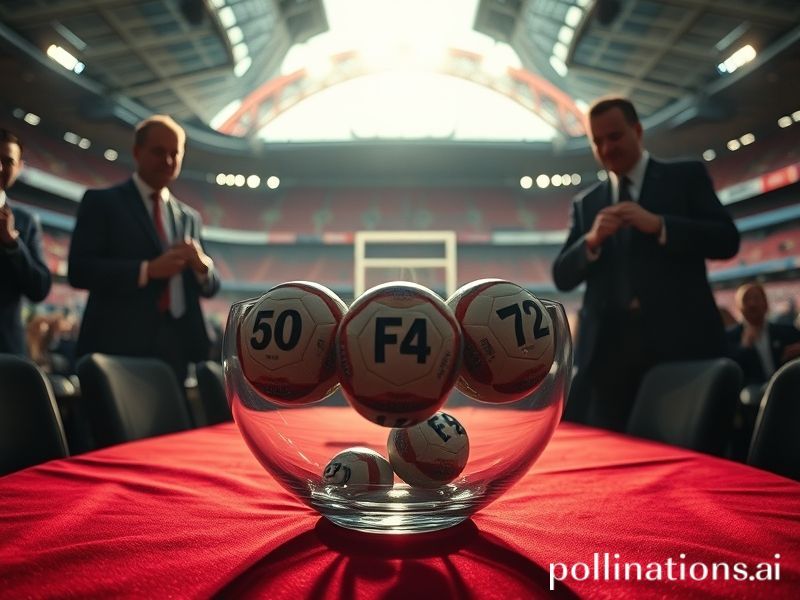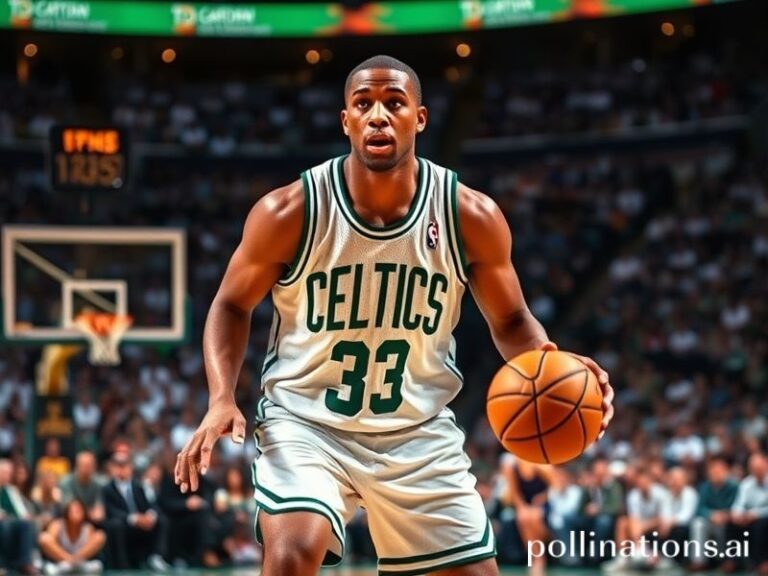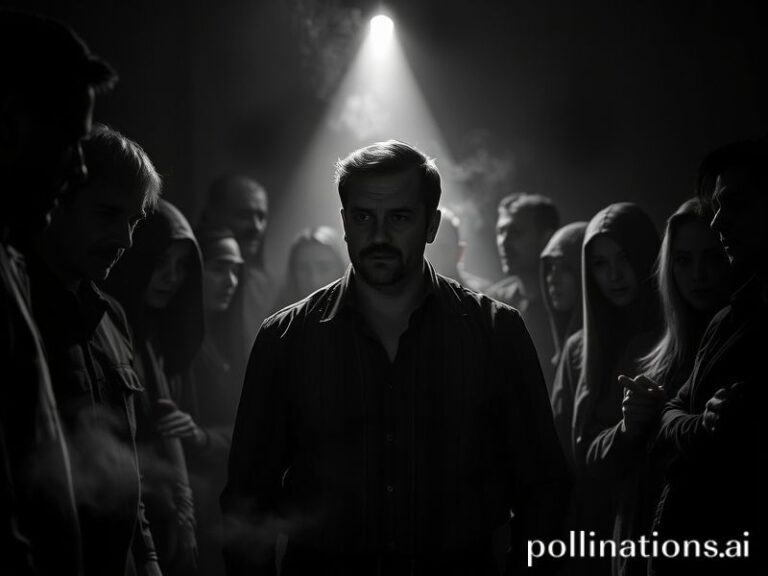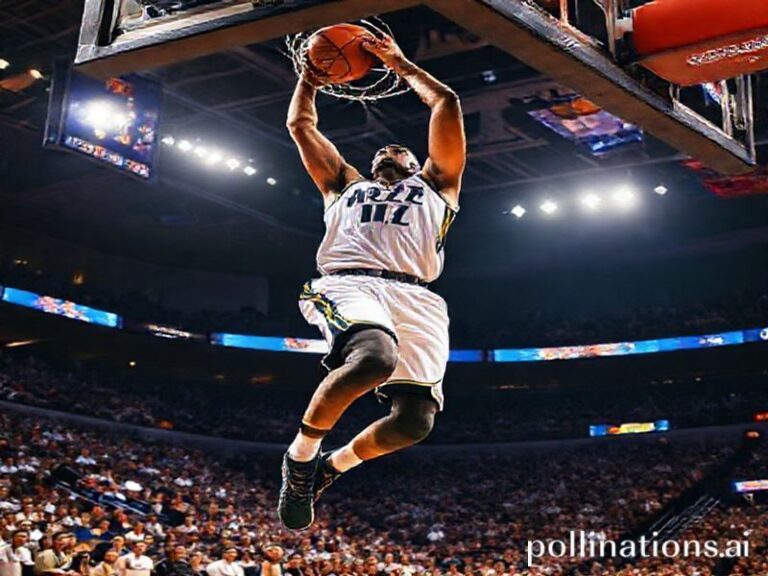From Cornwall to Calamity: How the FA Trophy Draw Became a Global Carnival of Commuter Misery
They say the sun never sets on the British Empire, but that’s only because the fixtures computer keeps shuffling the FA Trophy draw into ever-later kick-offs to appease foreign television. Somewhere between a Moldovan data-center and a streaming service headquartered in Delaware, 64 non-league clubs discovered on Monday whether they’ll be rewarded for defying geography, physics, and their own bank balances with a trip to somewhere equally unpronounceable in either English or despair.
From an international vantage point—specifically a barstool in Lisbon where the Wi-Fi password is a referendum joke—the FA Trophy draw looks less like a quaint domestic ritual and more like a UN sub-committee on existential dread. Teams whose weekly wage bill wouldn’t cover a single Qatari stadium cleaner now learn they must cross borders, oceans, or at least the M6, to play on pitches that double as grazing land on Thursdays. The draw’s real suspense isn’t “who gets whom?” but “which customs officer will confiscate the centre-half’s boots for looking like agricultural contraband?”
Consider the global supply-chain implications. A fourth-tier side from Cornwall will, if the fates are cruel (and they usually are), haul itself to the northern tip of Scotland, burning diesel, goodwill, and the last scraps of amateur innocence. Multiply that carbon footprint by the 32 ties and you’ve got an ecological impact roughly equivalent to a medium-sized cryptocurrency heist. Greta Thunberg is rumored to be watching the draw on a cracked iPhone, sighing in four languages. Meanwhile, a Singaporean betting syndicate has already priced the odds on which manager will be sacked via WhatsApp voice note before the third-round replay.
The broadcast itself is a masterclass in twenty-first-century absurdity. A retired midfielder-turned-pundit—now better known for crypto-gaming infomercials—pulls numbered balls from a Perspex drum that looks suspiciously like the isolation pod from a low-budget pandemic film. Viewers in 114 countries tune in, mostly because the feed auto-played after a cat video. In Lagos, a taxi driver pauses mid-fare to curse the draw when his hometown club, exiled to the sixth tier for financial crimes that would make a hedge-fund blush, lands an away tie against a team whose stadium capacity is smaller than his Christmas debt.
And yet, there is a perverse universality to the spectacle. The same anxieties ripple across continents: Will the coach break down in Calais? Will the Icelandic volcano erupt on match day, stranding the squad at an airport whose gift shop only sells fermented shark? Will the star striker, moonlighting as a PE teacher, be denied leave by his headmaster, a man who still thinks the European Union is a prank? Replace the accents and the currency, and you could be watching the Copa Sudamericana draw in a Bolivian cyber-café or the AFC Cup lottery in a flooded Manila barangay. Only the color of the balls changes; the dread remains gloriously monochrome.
Of course, the geopolitical symbolism is hard to ignore. Brexit was supposed to restore sovereignty, yet here we are, voluntarily inviting Guernsey—technically not even in the UK—to send a squad of semi-professional auditors masquerading as footballers onto English soil. Downing Street remains silent, presumably calculating the polling bounce if a plucky minnow from a “red wall” constituency knocks out a Channel Island tax haven. The Foreign Office, meanwhile, has begun contingency planning for the diplomatic incident when a Cornish fisherman-turned-centre-forward calls a rival striker a “continental diver” on live Peruvian television.
By the time the last tie is announced—inevitably pairing the two clubs furthest apart on the map—the planet has rotated 1,600 kilometers further into chaos. Bookmakers in Manila, Marseille, and Montevideo recalibrate; container ships reroute to deliver undersoil heating parts to a ground that still lists “turn right at the sheep” in its postal address; and somewhere in the metaverse, a non-fungible trophy is already being minted, pixel by pixel, for a fan base whose only certainty is that the bus home will break down outside a Greggs.
The draw ends. The universe shrugs. And the beautiful game, like a hungover tourist, staggers on toward the next obscure railway station, passport in one hand, half-time orange slices in the other, whistling a tune that sounds suspiciously like the death rattle of empire.







